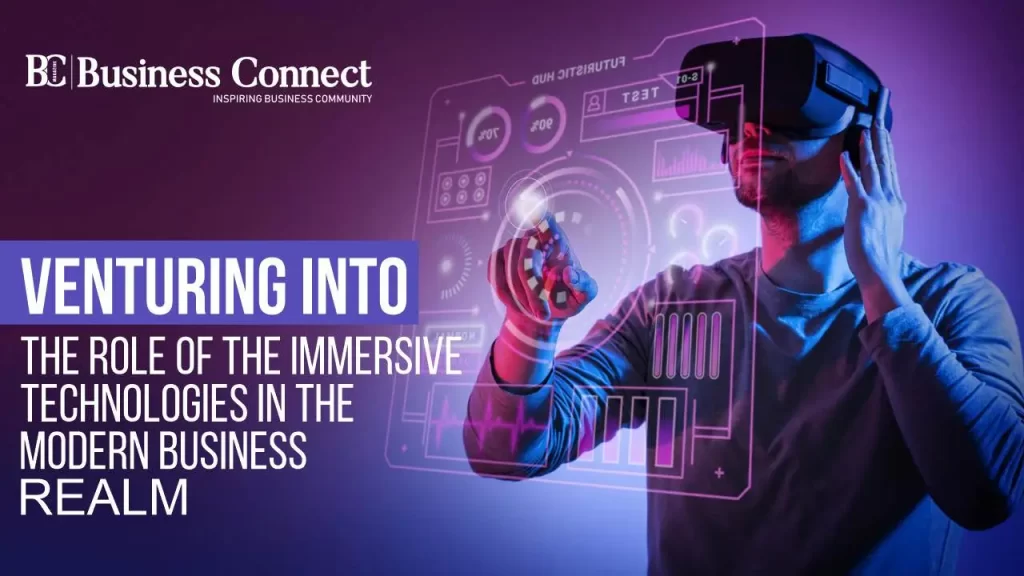Venturing into the role of the immersive technologies in the modern business realm
With the launch of ceaseless tech innovations spread across the business world, numerous immersive technologies redefine customer engagement. Be it AR, VR or MR, the tech advances are at the forefront of this transformative journey. At present, these are setting new benchmarks for enhanced interaction and experience. Driven by heavy investments from bigwigs like Meta and Apple, the whole business stage is up for global adoption across several industries.
At first, Meta is driving changes with its colossal workforce of 10,000 talented people focused on mixed reality. Whereas Apple, with its 2,000 personnel aimed at extended reality, showcases a sheer commitment of big tech to immersive technologies. No denial that the market echoes this enthusiasm and with the immersive technology sector, it is valued at nearly $28 billion in 2021. And by the end of 2028, it is poised to skyrocket to over $252 billion.
In the current scenario, customer experiences are palpable. Pointing to the budding demand, sales of AR/VR-related equipment and software surged by 50% during the period of 2019 and 2020. In addition to this, more than half of consumers are willing to rely on AR/VR for product assessments. This highlights a paradigm shift concerning interactive retail experiences.
As per the compelling case study in the retail sector, the tangible outcomes of immersive technologies are at the core. Such as, a make-up retailer using AR for virtual lipstick trials happened to see customers aligning with the product nearly twice as many lipsticks compared to traditional in-store trials. Furthermore, AR users demonstrated long-term browsing and enhanced product engagement. It allows them to translate into a notable 20% higher likelihood of purchase.
Now digital platforms are also not left untouched from immersive technologies that further amplifies consumer engagement. One of the most popular visual discovery engines, Pinterest has recently forayed in AR with its “Try On for Home Decor” feature which empowers users to virtually visualize furnishings within their respective living spaces.
And now, consumers utilizing this feature led to a 5x increase in sales compared to conventional pins. This example portrays the crucial role of immersive experiences in the escalation of conversion rates from the sales perspective.
The holistic concept of the metaverse comes out as the next frontier in immersive engagement. Gartner’s projections foresee the metaverse evolving into a virtual nexus for employee interaction, supplanting traditional video conferencing with avatar-based collaboration. With estimates suggesting a tenfold increase in metaverse adoption among workers by 2025, businesses are poised to leverage this transformative paradigm shift for enhanced connectivity and productivity.
What is worth mentioning is the fact that the metaverse’s potential goes beyond corporate space. It is now permeating across diverse realms with innovative applications. Moreover, Duolingo’s mascot, Duo, spearheaded the company’s metaverse debut. It is epitomizing the concoction of education and immersive technology within the Duolingo Game Hub. These initiatives echo a neoteric era where immersive learning experiences would be prominent. It is expected to transcend conventional frontiers and support high quality engagement.
Hence, several businesses are turning to adopt immersive technologies as their growth drivers relevant innovation and customer-centricity. Whether it is AR-implemented retail experiences or metaverse-enabled partnerships, the evolution and implementation of immersive technologies poses a great deal of promise to reshape almost every industry.



